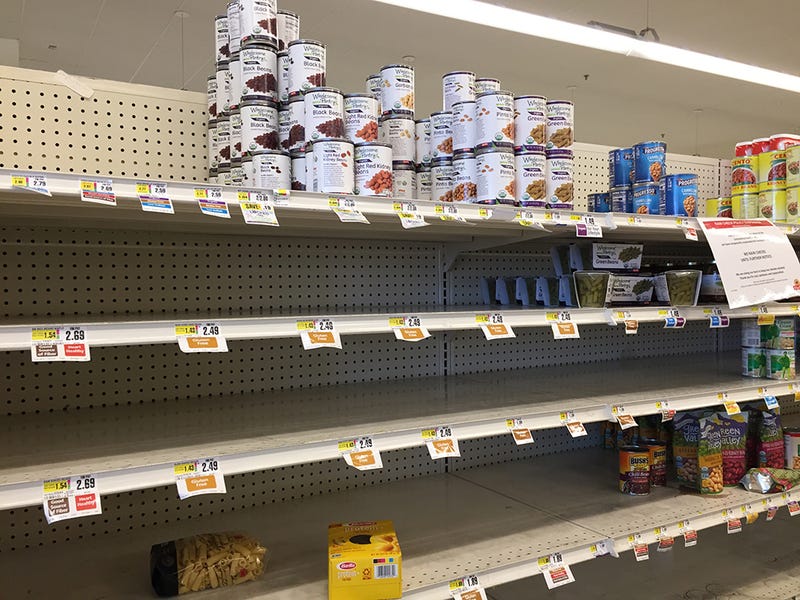Most grocery shoppers choose stores over online during coronavirus crisis
Nearly half of consumers have paid more for a product, Harris Interactive/Toluna poll finds
April 20, 2020

The prevalence of coronavirus nationwide hasn’t kept grocery shoppers out of stores, and many are shelling out extra to get what they want, a new Harris Interactive/Toluna survey reveals.
Of 1,047 Americans polled between April 9 and April 14, 70% said they are still visiting stores to buy their groceries rather than ordering online, according to the latest Toluna and Harris Interactive COVID-19 Barometer, a biweekly index that taps into a community panel of 30 million consumers.
Survey respondents said the top purchases on their shopping list are frozen food (cited by 65%), cleaning products (56%) and toilet paper (53%). Those product categories remain among the hardest-hit in terms of grocery retailer out-of-stocks, and most respondents pointed the finger at shopper hoarding as the reason. Eighty-five percent of those polled blame shortages of items like hand sanitizer, pasta and toilet paper on other shoppers.
When asked how coronavirus lockdown measures have impacted their shopping, 60% of consumers reported they have gone without products or services, and 47% said they paid more for something than they normally would.
“Despite the social distancing and government warnings to stay home, Americans are still shopping for their groceries in store, and if they can’t easily find what they need, they are willing to pay more,” explained Lucia Juliano, head of CPG and retail research at Harris Interactive and Toluna. “The survey also reveals that paper and cleaning products continue to top America’s shopping lists, which could explain why many stores and online retailers are experiencing shortages in these respective areas.”

U.S. consumers have shown they're not afraid to continue shopping for groceries in stores despite COVID-19, according to the latest Toluna and Harris Interactive COVID-19 Barometer.
When asked about how the coronavirus lockdown measures have affected their usual shopping habits, 60% of respondents have either gone without products or services or paid more (47%) for something than they usually would.
The research showed that 18- to 24-year-olds are much more open than older consumers to trying something new because the original product or service wasn’t available due to the pandemic. Still, inventory shortfalls have many customers wrestling with brand loyalty.
Respondents were split on when their usual brand is out of stock and they’ve had to pick an alternative, with 56% feeling the specific brand was critical and 44% feeling it wasn’t.
What’s more, the study revealed that consumers are willing to buy another brand yet not always a different product in certain purchasing situations. For example, 49% won’t buy a different personal care product — such as deodorant, toothpaste and shampoo — but they will purchase a different brand. Conversely, 44% are willing to buy a different brand of canned foods, such as peas, but aren’t willing to switch to a different product, such as spinach.
And as with canned foods, 47% of those polled will buy a different brand of paper products but not a different product, which Harris Interactive/Toluna said might explain why Americans have hoarded of toilet paper.
U.S. consumers, too, exhibit a high level of trust in retailers (77%), service providers (75%) and brands (68%), and survey respondents agreed that all have been informative, helpful and reassuring amid the coronavirus crisis, according to Harris Interactive/Toluna.
“It’s very clear that consumers recognize retailers, service providers and brands are doing a phenomenal job working to get the public what they need and are communicating to their shoppers regularly and appropriately,” Juliano added.
For our most up-to-date coverage, visit the coronavirus homepage.
About the Author
You May Also Like






